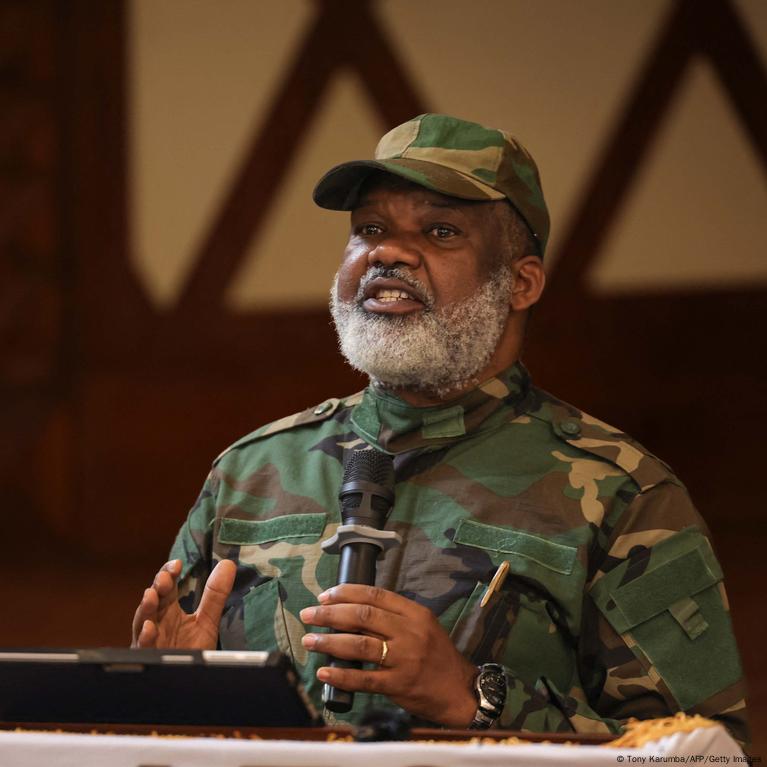The Alliance Fleuve Congo (AFC/M23), a rebel group operating in the eastern Democratic Republic of Congo (DRC), has announced a ceasefire starting February 4, citing “humanitarian reasons” caused by the ongoing conflict with the Kinshasa government and completely denied any plans to capture Bukavu, a city on south Kivu.
In an official communiqué released on February 3, M23 condemned the Congolese Armed Forces (FARDC) for allegedly using military aircraft at Kavumu Airport to load bombs targeting areas under the rebels’ control. The group claims these attacks have resulted in the deaths of civilians in territories they describe as liberated areas.
“We condemn the FARDC’s continued use of military aircraft at Kavumu Airport, where they load bombs that kill our compatriots in liberated areas,” the statement read.
While tensions have escalated in eastern DRC, particularly around key cities such as Goma and Bukavu, M23 clarified that they have no intention of capturing Bukavu or any additional territories. However, they reiterated their commitment to protecting and defending the civilian population and our positions.
“It must be made clear that we have no intention of capturing Bukavu or other areas. However, we reiterate our commitment to protecting and defending the civilian population and our positions.”
The ceasefire announcement comes amid a worsening humanitarian situation in North and South Kivu provinces, where thousands have been displaced due to ongoing clashes.
The United Nations and humanitarian organizations have repeatedly called for an end to hostilities, citing concerns over civilian casualties and the growing number of displaced people seeking refuge in overcrowded camps.

AFC/M23 also renewed its call for the withdrawal of SAMIDRC, a regional military force deployed to the DRC. The group argues that SAMIDRC’s mission “is no longer justified”, though regional leaders have maintained that the force is essential for stabilizing the volatile eastern region.
On the other hand, DR Congo’s next door, Rwanda has repeatedly raised concerns about the involvement of SAMIDRC in a Congolese government coalition that includes the FDLR, a UN-sanctioned group linked to the 1994 Genocide against the Tutsi.
Additionally, Rwanda argues that by fighting alongside the Congolese army near its border, SAMIDRC is aligning with a country whose president has openly called for regime change in Rwanda
A fragile peace?
Despite the ceasefire declaration, doubts remain about its effectiveness, as previous truces between M23 and the Congolese government have failed to hold. The Kinshasa government has not yet responded to the ceasefire announcement, but it has consistently accused M23 of being supported by Rwanda—an allegation both M23 and Rwanda deny.

The M23 rebellion, which originated from a group of former Congolese soldiers who mutinied in 2012, has been a major destabilizing force in eastern DRC. After being defeated in 2013, the group resurfaced in 2021, capturing several towns and advancing toward Goma, raising fears of a prolonged conflict.
Just over three years after the resurgence of the M23 in eastern DR Congo, the rebel group’s war with a government coalition saw its biggest escalation on Sunday, January 26, when the rebels entered Goma, the capital of North Kivu province and claimed its control from government forces.
The international community, including the African Union, United Nations, and regional bodies, has urged both sides to engage in dialogue to find a lasting political solution. However, with mutual distrust and ongoing military confrontations, the path to peace remains uncertain.
The rebels demand direct peace talks with the Congolese government, which has ruled out any possibility of talks with the rebels, calling them a terrorist movement. Regional initiatives have failed to end the war politically, with the Congolese government pursuing a military solution.
For now, civilians in conflict-affected areas await to see whether the ceasefire will hold or if fighting will resume, further deepening the humanitarian crisis in the eastern DRC.

